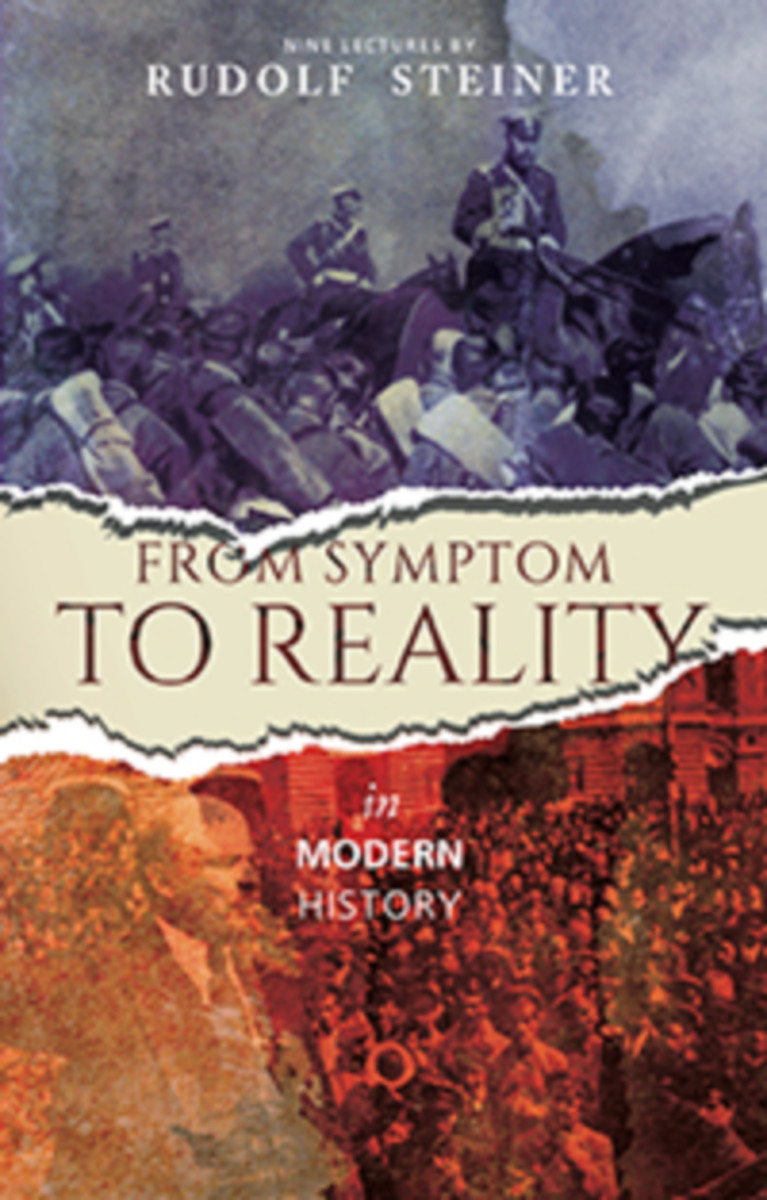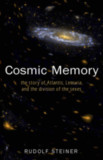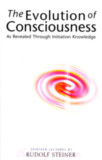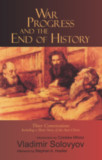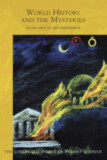From Symptom to Reality In Modern History
(CW 185)
- Publisher
Rudolf Steiner Press - Published
1st August 2015 - ISBN 9781855844148
- Language English
- Pages 256 pp.
- Size 5.5" x 8.5"
9 lectures, Dornach, October 18 – November 3, 1918 (CW 185)
In a radical approach to understanding current affairs and history, Steiner presents a method of penetrating to the hidden causes and realities behind outer appearance. He tells us that contemporary life cannot be fully understood by an analysis restricted to external events. Deeper levels of meaning are revealed when we begin to view such events as symptoms. The causes of the symptoms (the reality behind them) are discovered on other levels of existence.
Rudolf Steiner demonstrates his “symptomatological” approach in these lectures, surveying some of the great developments in consciousness that have helped form the world during recent centuries. He examines the role of true socialism, the rise of nationalism, and describes contrasting approaches to religion by distinguishing between “People of the Christ” in Russia, “People of the Church” in Central Europe, and “People of the Lodges” in the West.
This book is a translation from German of Geschichtliche Symptomatologie (GA 185).
C O N T E N T S:
1. The Birth of the Consciousness Soul
2. Symptomatology of Recent Centuries
3. The Historical Significance of the Scientific Mode of Thinking
4. Characteristics of the Supersensible behind Historical Symptoms
5. The Mystery of Evil
6. Brief Reflections on the Publication of the New Edition of The Philosophy of Freedom
7. Incidental Reflections on the Occasion of the New Edition of Goethes Weltanschauung
8. Religious Impulses of the Fifth Post-Atlantean Epoch
9. The Relation between Deeper European Impulses and Those of the Present Day
Notes
Rudolf Steiner
Rudolf Steiner (b. Rudolf Joseph Lorenz Steiner, 1861–1925) was born in the small village of Kraljevec, Austro-Hungarian Empire (now in Croatia), where he grew up. As a young man, he lived in Weimar and Berlin, where he became a well-published scientific, literary, and philosophical scholar, known especially for his work with Goethe’s scientific writings. At the beginning of the twentieth century, he began to develop his early philosophical principles into an approach to systematic research into psychological and spiritual phenomena. Formally beginning his spiritual teaching career under the auspices of the Theosophical Society, Steiner came to use the term Anthroposophy (and spiritual science) for his philosophy, spiritual research, and findings. The influence of Steiner’s multifaceted genius has led to innovative and holistic approaches in medicine, various therapies, philosophy, religious renewal, Waldorf education, education for special needs, threefold economics, biodynamic agriculture, Goethean science, architecture, and the arts of drama, speech, and eurythmy. In 1924, Rudolf Steiner founded the General Anthroposophical Society, which today has branches throughout the world. He died in Dornach, Switzerland.


